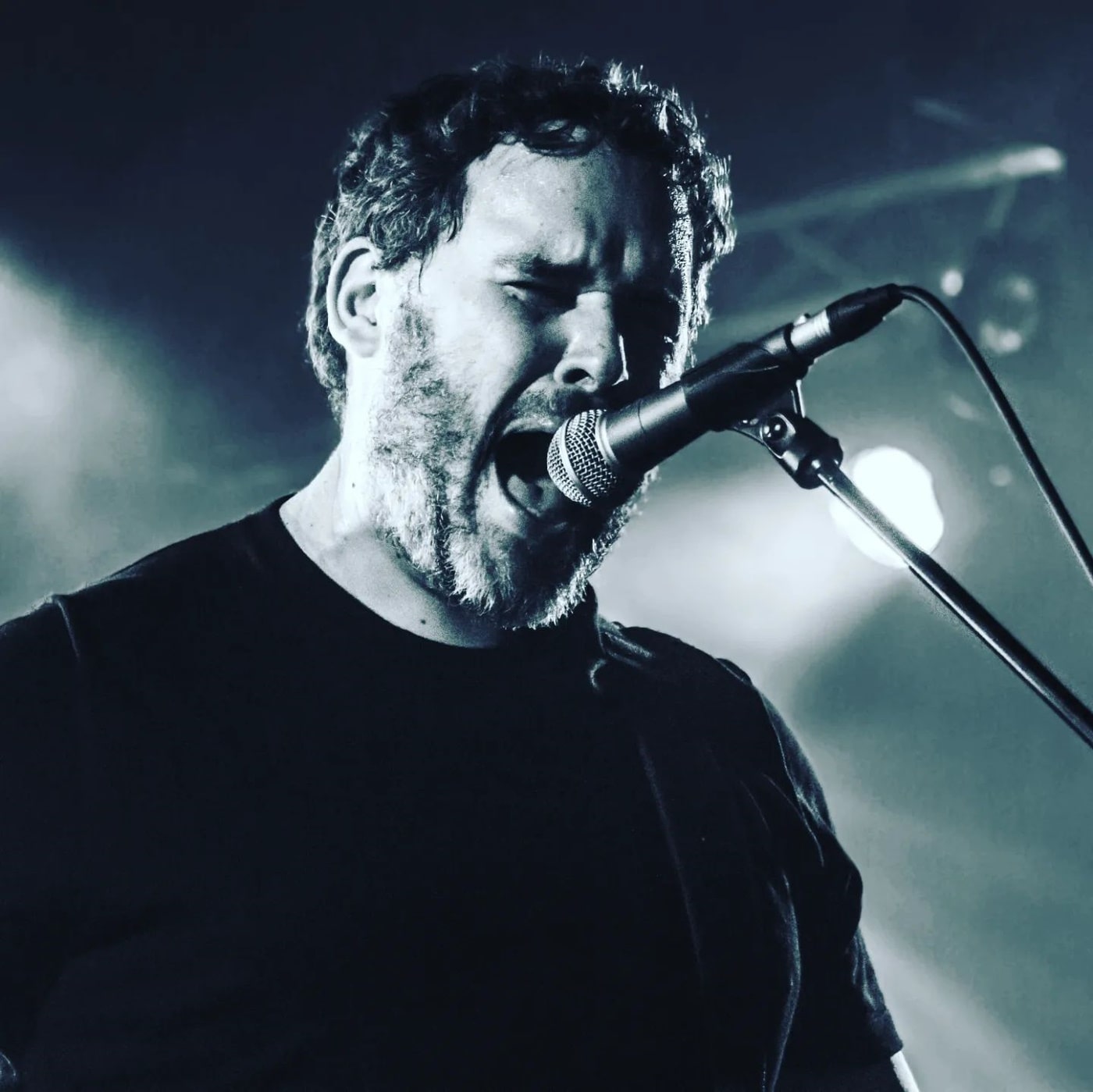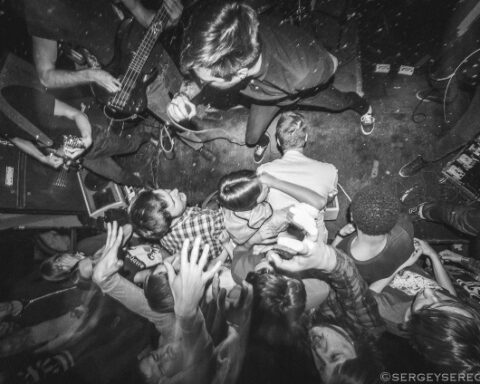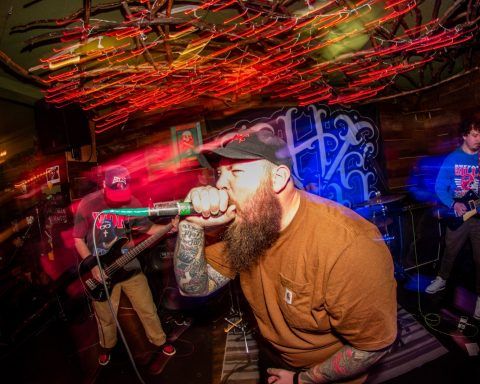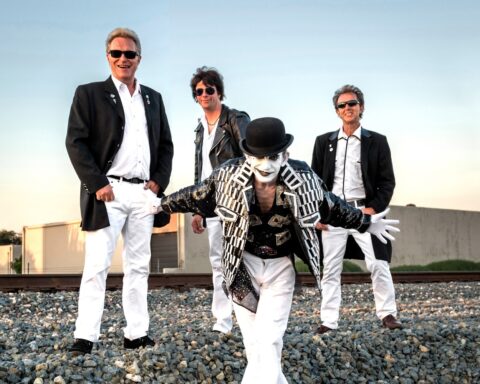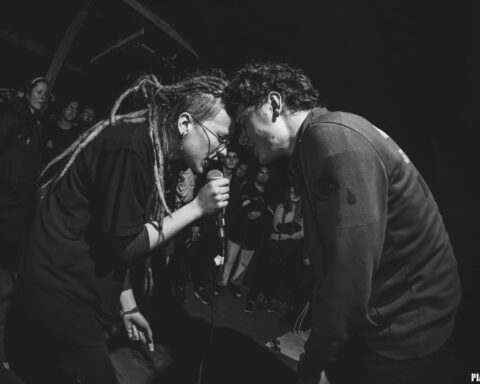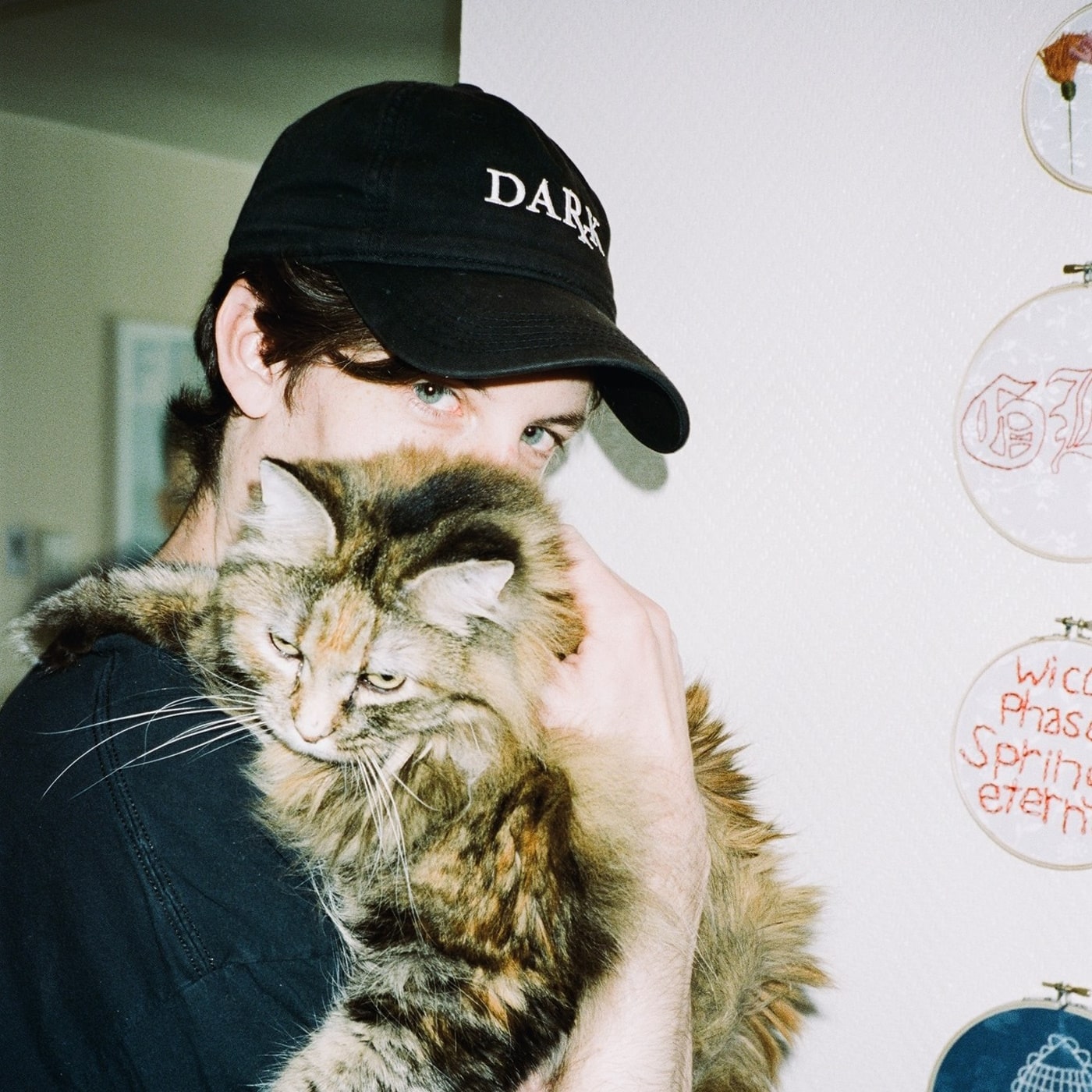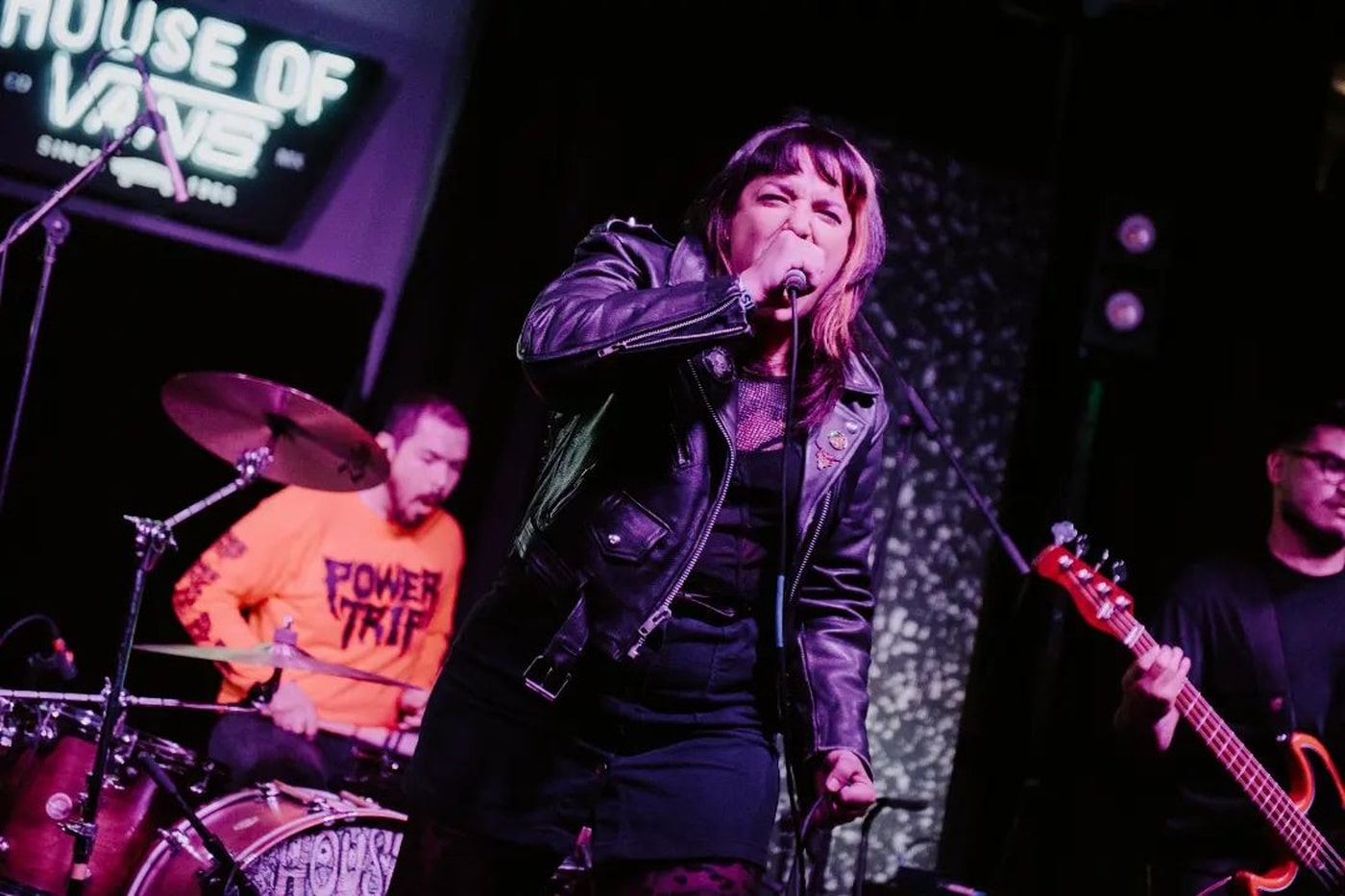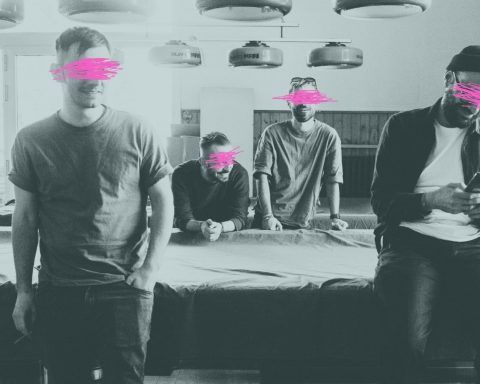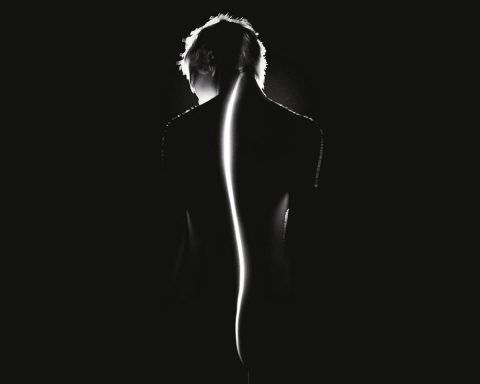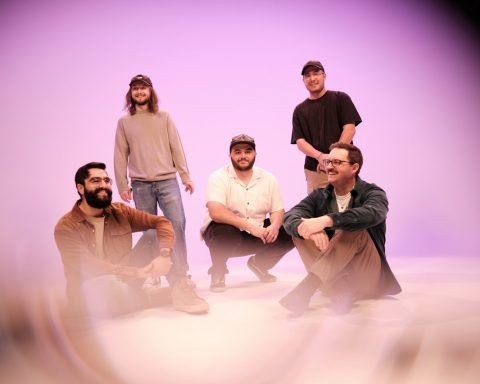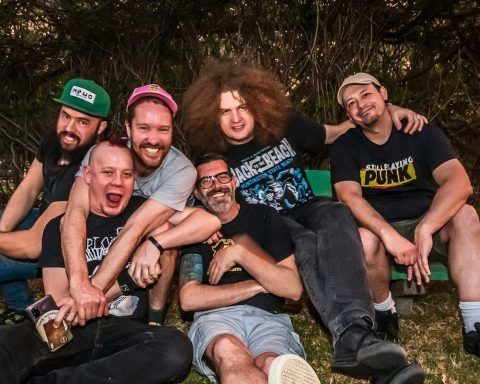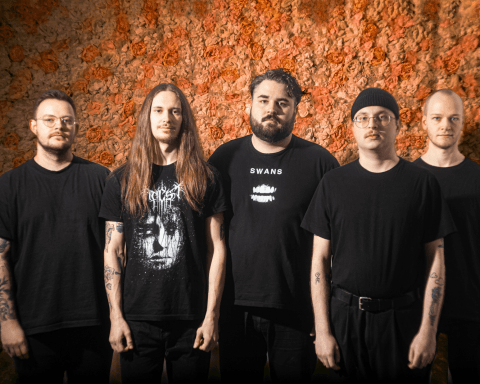The Great Montana Collapse‘s latest EP, released in September 2022, is a five-track album that showcases the band’s mastery of progressive blend of metal and post-hardcore. Composed by musicians who have been part of the DIY scene for years, the EP reflects their commitment to the DIY ethic while still presenting a refined and mature sound. The band’s latest single, “Still Standing,” is a prime example of their signature post-hardcore sound, characterized by vivacious crescendos and memorable, emotive refrains.
Every Dusk, Every Dawn marks both a continuation and a rupture for The Great Montana Collapse. The album was born out of a collaborative creative process that has spanned over two decades, while the band members’ personal experiences over the years have also influenced the album’s development. The EP also represents an important evolution in the band’s musical writing.
Although their primary influences remain a mix of metal, screamo, hardcore, black metal, ambient music, and cinematic soundtracks, the band has aimed for a more refined aesthetic with this release. As a result, the EP remains denser and more composite than most mainstream bands, but still manages to convey the essential lines and intentions of each song.
The members of The Great Montana Collapse each bring their unique perspectives and talents to the album. Nicolas, the bass player, concentrated on simple and sober lines to go more to the essential, while rhythms and harmony remained full of chaos. Julien, the vocalist, found it challenging to come up with the original vocal lines due to his lack of experience in the field, but found inspiration in the band’s raw, self-taught, and sensitive approach to music creation. Damien, the guitarist, reflects on his personal connection to the songs and what he likes and dislikes about each track as a guitarist. The result is an EP that is as authentic and spontaneous as it is refined and mature.
To recall this impressive offering, we sat down with the band to give you an insightful and in-depth commentary on each an every song featured on the EP, commented by e
I – TWO KIDS
Damien – Guitar and backing vocals: This song was actually written a long time ago. TGMC started as a side project, and after a hiatus of several years, we wanted to “make music great again,” as the former president once famously said. When we relaunched the project after our respective bands ended, we experimented with a new lineup of three guitarists and one or two drummers (influenced by Cult of Luna), as well as the traditional and indispensable bass player.
However, finding the time to get six people over 30 with kids to play together proved to be too complicated. We ultimately went back to a more conventional quartet form. Julien added some great lyrics to this song, which we revived from the dead. The Will Haven influence is still evident, and the vocals have an Alice in Chains feel to them, resulting in a very cool mix.
Personally, I am quite happy with the break in the song, which is quite unmelodic and reminiscent of the music we made with Nicolas (bassist) and Vincent (drummer) in our previous band, After Taste. But it can be head-banged to, so it’s all good. The final guitar part is a love letter to Deafheaven’s “Sunbather” and Envy’s “All the Footprints.” To top it off, the piece was beautifully brought to life in the music video, thanks to the almighty Francesca Raimondo!
Vincent – Drums: This is our introduction song on the EP, and we also perform it live! It quickly becomes very energetic, and I personally enjoy the heavy and repetitive rhythmic pattern that it features. In this song, I constructed a complete drum part on top of the guitar riff, starting off with the ride cymbal before transitioning to a more powerful ending on the crash cymbal, to bring the riff to a savage conclusion
Nicolas – Bass and backing vocals: This song serves as both the oldest and newest track on our EP. It was started under a different name (ORU) with different members, but was eventually finished shortly before the EP was released.
The song combines various moods and borrows from a range of influences. The opening riff was initially intended as a reference to Will Haven, but in the end, it sounds more like the foundation for some excellent music from the no less excellent band, Tang, World Necklace.
For the bass, this song served as an experimental ground, particularly because it was composed in different layers. All the quiet passages are played with “dropped” notes, where both the main note and the octave are played (facilitated by our A drop tuning). I applied this technique, inspired by the Cult of Luna sound, to many other passages.
Aesthetically, Two Kids evokes a sense of resistance and tenacity in the face of hardship, as well as being well represented in Julien’s lyrics and Vincent’s playing.
On a completely different level, this song now evokes for me the video clip we shot with Francesca in a 12th century Romanesque church. It’s funny how the music has allowed me to combine two different poles of my existence, and I find it to be a combination of circumstances that I often reflect upon.
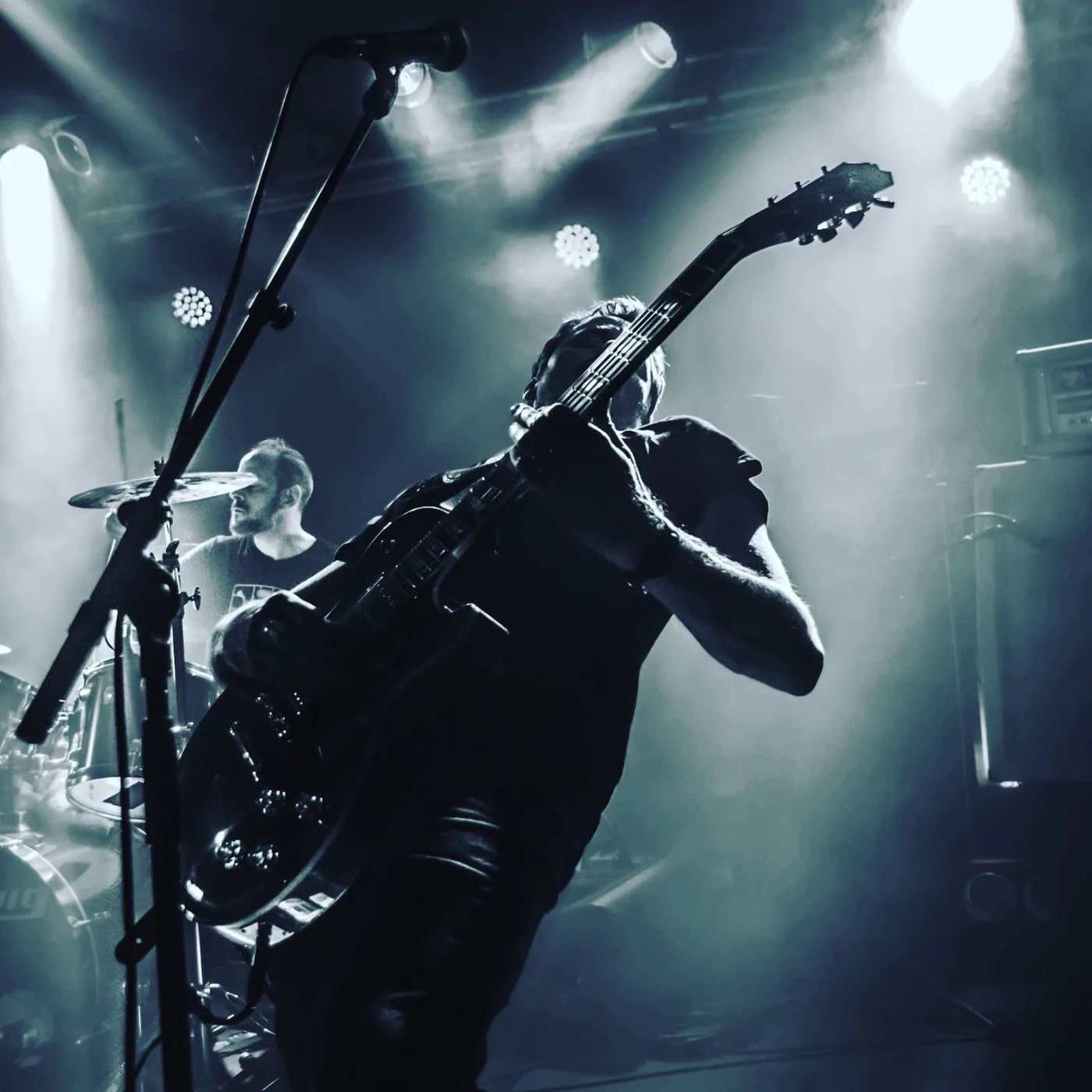
Julien – vocals: As a lyricist for our songs, I don’t typically have a single theme or structured story in mind. Instead, I tend to combine various thoughts and ideas to create an overall feeling or puzzle, which may include descriptions of specific experiences, opinions we want to express, invectives we want to convey, or even images to translate certain feelings, pains, or internal struggles. “Two Kids” is no exception, and through the lens of an almost fraternal relationship, I delve into the difficulties of accepting the impermanence of life, the anguish of never finding one’s true place in the world, and the inevitability of loss and death. Despite these challenges, however, there are still traces of hope, good reasons to hold on, and people worth cherishing.
Friendship is central to our lives, and I, for one, am completely dependent on the relationships I have with those I love. “Two Kids” also explores the burden and pain of accepting someone’s deep friendship, but also the vital meaning it gives to our lives and the strength it provides to overcome challenges. Even after 20 years as an amateur musician, I find myself unable to start a band without knowing its members deeply.
In terms of vocal influences, I’m still “traumatized” by the grunge wave of the 90s, especially by Alice in Chains, from whom I happily borrow vocal harmonies – perhaps too much. We come from bands that relied heavily on screamed and yelled singing, and for a long time, it was the only way I felt I could express myself in line with the emotions we wanted to convey in our music. While I’ve tried to incorporate other vocal styles, you’ll still hear those harsh voices in our songs, blending our emo/screamo influences with our angry metal roots (with growls expected in future works!).
II – DREADFUL TEETH
Vincent: This composition is great! We spent a lot of time trying out different entry ideas, but eventually realized we needed to simplify things. I really like the hip-hop rhythm in the middle of the song. It creates a sonic and emotional build-up that carries through until the end. Simple yet powerful: perfect for me.
Damien: My first thought is “fast”: the first riff is a challenge for my wrist (death metal guitarists may laugh at me). The second part is the opposite, in-your-face with dissonant chords that slide ala Kickback, in a bad way. I’m still not completely satisfied with some parts, such as the break which sounds good, but I think could have been improved. Anyway, the end of the song is filled with a sense of urgency and passion, and that’s what our music is all about.
Julien: This is true for all the songs on the EP, but this one in particular was a real laboratory of experimentation for me. The sustained rhythm at the beginning immediately gave me the desire to create a very vindictive song with a more sustained flow than what we’re used to hearing in a post-hardcore band (I’ll let you judge the result, a reviewer heard echoes of Limp Bizkit… Fuck!). The first part of this song can be seen as a dialogue between two characters: one in the in-your-face part (“let me tell you how life can be a trap…”) who proclaims himself a savior, full of wisdom and knowledge about life, thinking he is legitimate enough to give advice that only he deems appropriate; and the other in the bridge (“broken soul is all I got”), who is in a victimized position and is complacent in a vicious depression that comforts him. Somewhere both are in error and fall into the traps (the famous “dreadful teeth”) that they encounter on their way through life.
The second part of the song evokes a particular anecdote about living one’s life while avoiding these famous traps that put us outside of reality, our relationships with others, and the value of our actions and words. It talks about a ride my wife and I took in the middle of the Louisiana bayou on a tiny motorboat a few weeks after our wedding, surrounded by dozens of alligators (with dreadful teeth). Being there with her hand in hand brought me serenity and inner peace (“you took my hand and showed me how this life could end”), somewhat in opposition to the funny situation in which we found ourselves, which could have been much more stressful given the circumstances.
This famous little boat was led by a real movie character (the kind that would win a prize at Sundance, in a redneck dive mode), obviously a misanthropic former soldier (“he was a ‘Nam veteran who liked fish better than men”), who received the inevitable “thanks for your service, man” from the other Americans on the boat, as if compromising oneself in one of the most vile human behaviors, that is, making war and killing one’s fellow man, had to be set up as a divine example to follow. For me, enlistment in the army is another systemic trap based on a long tradition of brainwashing, another form of dreadful teeth. By the way, the clear voice part after the soft break (“this man was so lonely…”) is a complete rip-off of an old Incubus song (yeah, the nu-metal one… again…). When I realized that, I forced myself to listen to their whole discography to find that melodic part from their singer. I never did, so… if you have the reference (or 3000€ to invest in our vinyl pressing) > [email protected]
Nicolas: This track is much more dissonant than the previous one, and maybe less accessible. It has other influences that I’ve been using for the last twenty years, especially black metal from the 90s. I like Julien’s voice on “Dreadful Teeth”, probably because it expresses themes that speak to me now: the emptiness of existence, and the fact that it can crush you even when you’ve made the right choices. My favorite part is probably the last riff, which is totally dissonant and chaotic, with its layers of stacked voices.
III – THE SMELL OF TORCHES
Damien: I love the riff, from the 8th fret to the 1st, it’s not straight but so good, and the arpeggio part is once again on a rush. This song is on the edge on many fronts, fast part and big riff, aggressive like Dreadful Teeth.
The bridge could have been better, yet songs are reflections of us as a band and we’re anything but perfect. The last riff is huge, especially live when we can scream while waving our guitars in the air (easy part to play of course).
Nicolas: Always in a post-metal/post-hardcore vein, “The Smell of Torches” draws from two other bands that I admire a lot: on one hand Sumac – for the will to create a heavy, broken and hypnotic atmosphere – and Russian Circles – which also plays on this repetitive dimension, but with a lot of finesse. The alliance (or rather this attempt of alliance) of these contradictions gives this musical base. Damien uses, as often, numerous arpeggios, which counterbalance the hypnotic dimension with melody, while Vincent plays on the side of the bass, having motifs that come back in a loop. The last passage is always very expressive live, although this music is probably the least “easy listening” of the EP.
“The Smell of Torches” is clearly a song that evokes violence for me – which I have a lot of trouble with, even when it’s obvious. The conflicts that currently undermine the world, the despair of migrants, the economic crises that are coming: all this can be found, for me, in this cold, hard and circular music.
Vincent: An old composition (like four years old before recording). I like it a lot, the drum shots are very airy at the beginning, especially on the bass drum, so when I hit it, it’s more percussive to the ear. The main drum riff was worked out with Nico, the bass player, later on. That’s often how we do it. They spin the guitar riff; I introduce step by step what comes to my mind until we look at each other and smile.
Julien: When it comes to the vocal lines of this song, I drew inspiration from a wide range of sources, including Kurt, Layne, Manson, and the first generation of Emo US bands like Texas is the Reason, Sunny Day Real Estate, and Basement. We also have our shameful neo-metal roots from high school, and I always turn to Tetsu from Envy, Grady from WHVN, and Stephen from Kickback when it’s time to throw up my guts on the floor (as our contract with the record company indicates).
Lyrically, this song reflects our anger and disgust with the current state of the world and our desire to revolt against the system in place. While we’ve never made openly political or committed music, sometimes it’s necessary to make things clear, especially when human and humanistic values become the concern of a minority. ‘The Smell of Torches’ is a call to openly hunt our political classes (‘They’d better hide now’), to treat the financiers and the ultra-rich in ‘Battle Royal’ mode (‘They’d better run’), and to make civil disobedience the seed of a revolt that may or may not happen. Humanity will only survive if we get rid of this capitalist system. As a band, we are all like viewers of a good Netflix thriller, wondering if enough of the world will open their eyes fast enough before it’s too late or if they will keep themselves glued to screens that only spread the crap of an old world that crushes us and will only end in a global catastrophe given the ambient idiocracy.
IV – THE MOUNTAIN
Julien: There’s nothing really original in the end for the apocalyptically named band that we are: after the antifa/antiK song, we have the alarmist lyrics about the ecological catastrophe we’re just starting to experience!
“The Mountain” can be interpreted in different ways (NB: I particularly like writing lyrics that are sometimes vague to allow for individual interpretation, much like Kurt Cobain did). The song describes the cowardice and irresponsibility of the human race, through its ruling elites, in knowingly burning the planet. It also explores the more personal cowardice that each of us can show in our lives to justify our mistakes, deviances, lies, and all our dark sides that we hide so well. There’s a kind of flaw in the human heart that animalizes us to the point of making us, from the perspective of a hypothetical alien, the most ubiquitous evolved species possible when you consider our penchant for self-destruction, whether personal for the depressive, the junky and the idle, or global and systemic for the human race as a whole, today in this post-industrial era but as it has always been, as for example at the End of the Roman Empire.
At the end of the song, there’s a nod to the previous track with a new invective towards politicians, finance people, and friends (“they lied to us, to our face”), but this time rather critical and mocking of our tendency to always blame “superior forces that oppress us,” a refrain that sometimes leaves us in inaction justified by the uselessness of individual change. You know what? Individual change would at least allow us to meet fewer assholes per square meter in everyday life.
Musically speaking, I find this song really cool for its unusually easy-listening (for the freaks who listen to our niche music anyway, it’s all relative) in our humble catalog of songs. Usually over 6 minutes long, with trigonometric riff attempts, untimely aggression, chilling dissonances, voluntary or not, and without ever a hint of a verse-chorus structure.
With my limited experience and my status as a singer-imposer, I try to put a maximum of emotion into the singing. Whether we’re in pure screamo soldier mode or I’m singing as a flayed songwriter, it’s always a question of being authentic above all, of giving the emotions as we feel them, and of trying to embody the precious texts that released us when we wrote them down on paper.
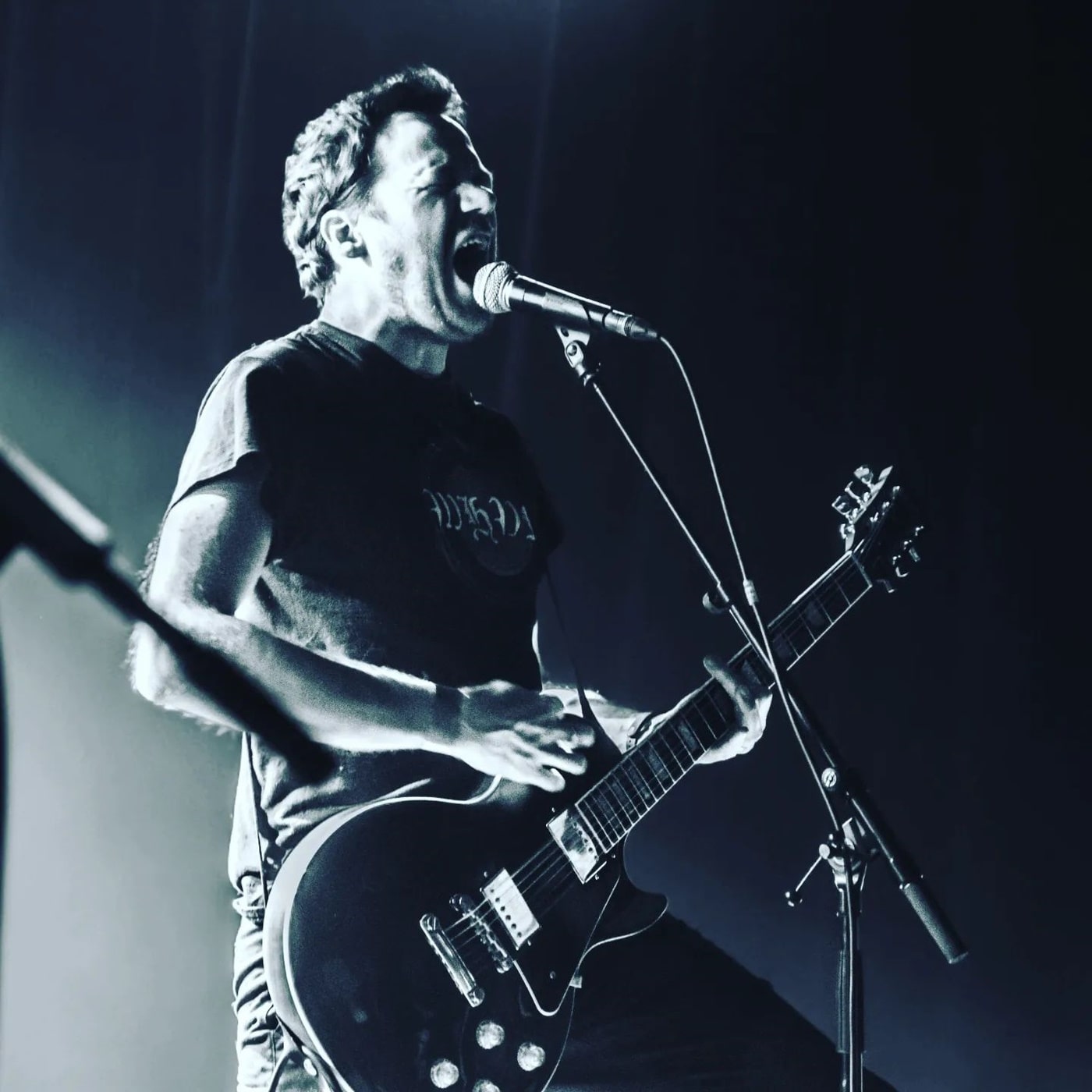
Nicolas: The track opens with a jagged riff that undoubtedly borrows from more mainstream metal – although I strongly thought of the cult band Kickback for the counterpoint of this one. Deftones and Thrice are also references for the heavier, soaring passages. “The Mountain” probably has more light than most of the other songs on the EP. I’m thinking, in particular, of those passages I just mentioned, even if Julien’s lyrics also evoke a dead-end path. But isn’t this, in a way, peace: the total acceptance of the omnipresence of despair?
To get back to more concrete things, like on the following track, I really like the calm passage/bridge, where Damien’s guitar combines with Vincent’s drums and Julien’s vocals. This is typically the kind of dark and dense atmosphere I modestly try to imprint on the listener’s mind with “The Great Montana Collapse”.
The end of the song comes back to the Kickback-inspired riff, to make it a more hypnotic loop, in the manner of Sumac.
Damien: In our band name, the ‘Montana’ could be seen as the American state or just as a mountain (Montaña in Spanish), like the title of this song, which happens to be the one that brought our band back from the dead. Heavy start on drums and guitars just to open the way to a Deftones-like chorus (another influence to name-drop). I really like the bridge this time; it reminds me of a song from our previous band, and well, as a convinced ecologist, I also recycle my riffs! The end part is haunting thanks to Julien singing while the instruments are on repeat mode to make a hypnotic wall of sound which once again can talk to Will Haven fans.
Vincent: Our very first composition, the riff was obvious for everyone from the start. I quickly went to my influences (Deftones and Will Haven mainly for this project), and it is a pure joy to perform!
V – STILL STANDING
Vincent: This composition is one of the most mature, both rhythmically and melodically, in terms of vocals, power, nuances, and arrangement. It is a ternary music that is effective in terms of percussion and intention (I want to say that in metal, if you don’t make one in ternary, you miss out on life)! On this composition, I leaned more on the lyrics, which touched me a lot (Julien is a beautiful poet) and certainly modified my way of playing it live.
Nicolas: Damien brought the first riff to this one, which he rarely does (but should do more often). It is based on a ternary rhythm, like many of our former band’s compositions (especially After Taste). This kind of plan reminds me of the screamo scene of the years 2000-2010, a scene I really enjoyed living and listening to.
I tried to balance the rock’n roll side of the ternary by adding a very heavy bass, again reminiscent of Will Haven (at least that was my intention). For me, the interplay of the three voices (Julien, Damien, and me) contributes to this complex tension between dynamism and heaviness.
As on “Two Kids,” the bridge is played on the bass simultaneously on two notes at the octave, which allows us to obtain an effect of depth in combination with the omnipresent fuzz on my instrument. The quiet middle passage evokes for me a great emptiness, tension, and maybe something secret. This was perfectly captured by Naps’ work on the song’s video, as the passage takes place in a disused factory – huge and a bit eerie.
“Still Standing” is the last song written for the EP. For me, it is the most mature and richest.
Damien: Here we are, still standing after all these years… This song is my favorite one on our EP! From the musical parts to the lyrics, I feel very proud of what we did on this one, and even prouder of what our friend Naps has done shooting the video for this song, with my kids acting in it – kind of a life achievement. It starts fast like a blackened post-hardcore song and ends in a massive riff written by Nicolas (who brings most of the riffs) à la Cult of Luna. The rest is about melodic parts that echo throughout the song, reinventing themselves at different moments and creating an eerie feeling, as if the blinding light of hope was blended with the comfort of shadow. When I play this song, I feel alive, insecure, passionate, screwed, and yet happy. We usually end shows with that song, all of us shouting our hearts out during the last slow-down part, making it a killer finish. Most of the time, this ending song leaves us exhausted, on our knees, but once again feeling better than before starting it.
Julien: We all agree that this song fulfills our expectations when we consider our vision of what a good piece of intense and meaningful music should include. Even though it may not appeal to everyone at first glance, this track is the one we’re most proud of, whether it’s for its level of intensity, its combination of complex passages and silly in-your-face parts, and even its lyrics, for my part. It is at once the most desperate and the brightest text I have written. The first parts, which can be interpreted according to different themes, are a deep self-criticism in the subtext, which gives it a real cathartic and liberating dimension for me. After 25 minutes of darkness, I wanted to give at the end of the text a bit of light, a semblance of positivity – always drowned either in a cynicism of facade or in a lazy abandonment in front of adversity – by reminding us that we have to nourish ourselves as well as we can with the last snippets of humanity able to give us sense, and one never knows, by moment a bit of happiness, by never forgetting to make proof of resilience, self-determination, altruism… The ties that bind us to each other being in the end all that matters, this relational interdependence (with our wives/lovers, our friends, our children, or simply the strangers we meet in a common and millennial benevolence) is all that makes, without facilitating it, the value of Life, to which we are all addicted.
‘Spare the things that nourish your heart, find a light to beacon your path. hang in there and pray for yourself. in the end you’re still an addict’



